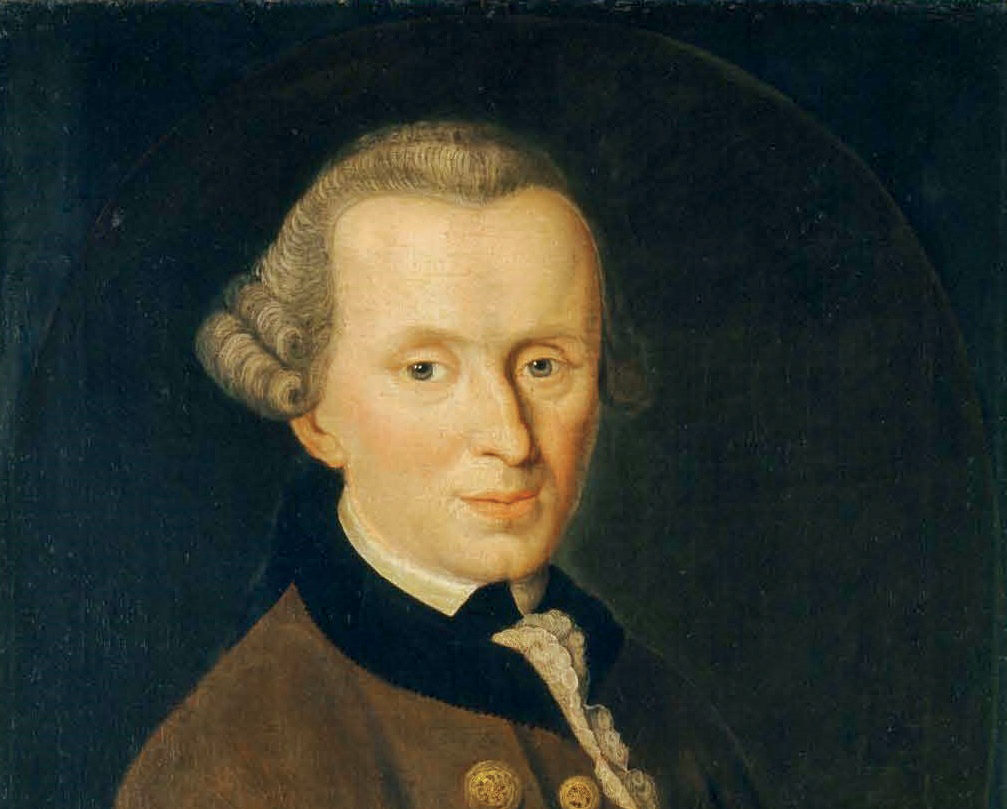Leibniz: Optimism and Determinism
Gottfried Wilhelm Leibniz was a polymath of the 17th century whose work spanned philosophy, mathematics, and science. Born in 1646 in Leipzig, Germany, Leibniz contributed significantly to various fields, yet his philosophical ideas on optimism and determinism remain particularly influential. As we delve into these concepts, we will see how they shaped Leibniz’s worldview and continue to challenge modern thinkers.
Optimism, in Leibniz’s perspective, refers to the belief that the world we live in is the best possible one. This notion stems from his confidence in a benevolent God who, in creating the universe, meticulously chose the most favourable option. Determinism, on the other hand, is the idea that every event or action has a cause and is predetermined. Leibniz’s version of determinism, however, is not a denial of free will but rather an acknowledgement of a deeper order in the universe.
Throughout this exploration, we will discuss the principle of sufficient reason, the doctrine of pre-established harmony, and Voltaire’s critique of Leibniz’s optimism. By examining these ideas, we can gain a richer understanding of Leibniz’s philosophy and its relevance today.
Part 1: Background and context
The 17th century was a tumultuous time marked by religious conflicts, scientific revolutions, and radical philosophical ideas. Amidst this upheaval, Leibniz emerged as a towering figure, striving to reconcile the apparent contradictions between faith and reason, as well as between freedom and necessity.
Leibniz’s ideas were, in part, a response to the emerging mechanistic worldview, which viewed the universe as a giant machine governed by mathematical laws. This perspective, championed by philosophers like Descartes and Hobbes, challenged traditional religious beliefs and raised questions about human freedom and moral responsibility. In this intellectual climate, Leibniz sought to develop a system that preserved both the orderliness of the universe and the meaningfulness of human action.
His philosophical approach was shaped by his deep-rooted commitment to both rationalism and faith. Rationalism, a prominent school of thought in the 17th century, emphasised the power of human reason to discern fundamental truths. Leibniz shared this belief in reason, but he also maintained that divine wisdom underpinned the structure of the universe. This dual commitment laid the groundwork for his ideas on optimism and determinism, which we will now explore in greater depth.
Part 2: The principle of sufficient reason
Central to Leibniz’s philosophy is the principle of sufficient reason. This principle asserts that for every fact or event, there must be an explanation or reason that accounts for its existence. In simpler terms, nothing occurs without a cause or justification. The principle of sufficient reason provided Leibniz with a powerful tool to explore the workings of the universe and the nature of God’s creation.
To illustrate this concept, consider the existence of a book on a table. The book did not simply appear there randomly; rather, there is a reason for its presence, such as someone placing it there. This chain of reasoning can be extended to every aspect of the universe, from the tiniest particles to the grandest cosmic structures.
By applying the principle of sufficient reason, Leibniz sought to demonstrate the inherent rationality and orderliness of the world. This belief in a comprehensible universe underpinned his optimism and his conviction that the world is the best possible one. If God, as the ultimate reason for everything, is perfect and all-knowing, then it follows that the universe He created must be the best version achievable.
However, this principle is not without its critics. Some argue that it leads to an infinite regress, as each reason or explanation requires another one, potentially stretching back ad infinitum. Others question the assumption that every event needs a reason, suggesting that some phenomena might be inherently random or uncaused.
Despite these challenges, the principle of sufficient reason remains an influential and thought-provoking aspect of Leibniz’s philosophy, inviting us to ponder the deeper structures that govern the world and our place within it.
Part 3: The doctrine of pre-established harmony
Another cornerstone of Leibniz’s philosophy is the doctrine of pre-established harmony. This doctrine posits that the universe operates in perfect harmony, with every entity following a predetermined path in accordance with God’s plan. Central to this idea is the concept of monads, which Leibniz introduced to explain the fundamental building blocks of reality.
Monads, according to Leibniz, are simple, indivisible substances that make up all things. Each monad is unique, possessing its own internal programme that determines its development and interactions. Crucially, monads do not directly influence each other; rather, their actions are perfectly synchronised, as if following a divine script.
Pre-established harmony, then, is the view that the universe is an intricately coordinated system, with every component acting in concert with the rest. This harmony is not the result of direct causation between entities but instead arises from the perfect coordination of their individual programmes, established by God at the moment of creation.
The doctrine of pre-established harmony allows Leibniz to reconcile determinism with human freedom. Although the course of events is predetermined, each individual’s actions still stem from their unique internal programme, reflecting their desires and intentions. Thus, Leibniz’s determinism preserves the meaningfulness of human choice and moral responsibility.
Nonetheless, critics of pre-established harmony argue that it raises several difficulties. Some contend that the idea of monads and their perfect coordination is too abstract and speculative, lacking empirical support. Others challenge the compatibility of determinism and free will, asserting that true freedom requires the ability to change one’s predetermined path.
Despite these objections, the doctrine of pre-established harmony remains a fascinating aspect of Leibniz’s philosophy, offering a striking vision of a world where order and freedom coexist in a delicate dance of cosmic harmony.
Part 4: Voltaire’s critique of Leibniz
While Leibniz’s ideas on optimism and determinism have attracted many admirers, they have also faced criticism from prominent thinkers. One such critic is the French philosopher and satirist Voltaire, who took issue with Leibniz’s unwavering optimism and its implications for human suffering.
Voltaire’s critique is most famously expressed in his satirical novel “Candide,” which tells the story of a young man, Candide, who is raised on the belief that this world is the best of all possible worlds. Through a series of misadventures and calamities, Candide is confronted with the harsh realities of life, including war, natural disasters, and human cruelty. As the protagonist’s naive optimism crumbles, so too does Voltaire’s critique of Leibniz’s philosophy unfold.
The primary issue Voltaire raises is the problem of evil. If the world is indeed the best possible one, as Leibniz asserts, then how can one account for the existence of suffering and injustice? Voltaire suggests that Leibniz’s optimism is incompatible with the reality of human experience, and that it trivialises the pain and misery endured by countless individuals.
Furthermore, Voltaire challenges the underlying assumptions of the principle of sufficient reason and pre-established harmony. He questions the notion that everything has a purpose or reason, arguing that some events may be simply arbitrary or senseless. In doing so, he disputes the very foundation of Leibniz’s optimistic and deterministic worldview.
Despite these criticisms, Leibniz’s ideas continue to provoke thought and debate among philosophers and laypeople alike. By engaging with Voltaire’s critiques, we gain a deeper understanding of the complexities and nuances of Leibniz’s philosophy and the challenges it faces in accounting for the darker aspects of human existence.
Part 5: The relevance of Leibniz’s ideas today
Though centuries have passed since Leibniz first articulated his ideas on optimism and determinism, their relevance persists in contemporary philosophical discourse and everyday life. By examining the ongoing significance of these concepts, we can better understand their impact on modern thinking and the enduring questions they raise.
The principle of sufficient reason, for instance, continues to inform debates surrounding causality, determinism, and the nature of the universe. In the realm of science, this principle resonates with the search for a “Theory of Everything,” an all-encompassing framework that unifies the laws of nature and accounts for every physical phenomenon. Additionally, the principle fuels discussions on the limits of human knowledge and the potential existence of a deeper, more fundamental reality.
Leibniz’s doctrine of pre-established harmony also remains pertinent, particularly in discussions on free will and moral responsibility. As advances in neuroscience and psychology shed light on the complex interplay of genetic, environmental, and cognitive factors that shape human behaviour, questions of determinism and individual agency resurface. By revisiting Leibniz’s ideas, we can gain valuable insights into the intricate balance between the predetermined aspects of our lives and the choices we make.
Lastly, the critique of Leibniz’s optimism by Voltaire and others invites reflection on the nature of suffering and the human condition. As we confront the challenges of the modern world, such as social inequality, climate change, and political turmoil, the tension between optimism and pessimism remains a pressing concern. Engaging with Leibniz’s philosophy can help us navigate these complexities and foster meaningful conversations about our collective future.
In essence, Leibniz’s ideas on optimism and determinism, along with the critiques they have faced, continue to inspire contemplation and dialogue in our contemporary world, encouraging us to ponder the intricate workings of the universe and our place within it.
Part 6: Further reading and exploration
To delve deeper into Leibniz’s philosophy, start with his original works, like “Monadology” and “Theodicy” to explore his ideas first-hand. Examine critiques, like Voltaire’s “Candide,” for a balanced understanding. Lastly, engage with contemporary debates on determinism, free will, and optimism to appreciate his ideas’ ongoing relevance.



